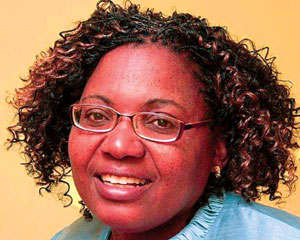
THE Securities Exchange Commission of Zimbabwe (Secz) is putting in place mechanisms that require public-listed companies to practise good corporate governance and encourage more disclosures to shareholders.
BY KUDZAI CHIMHANGWA
This comes after a number of companies in Zimbabwe have been accused of releasing financial results suitable to their interests rather than the concerns of shareholders.
Speaking at a shareholders’ forum hosted by the Institute for Sustainability Africa (Insaf) in Harare last week, SECZ chairperson, Willia Bonyongwe said the role of shareholders in financial markets was critical in fostering market integrity.
“We have seen that people [in companies] don’t disclose anything meaningful, they just do enough to meet the legal requirements. The level of disclosure leaves a lot to be desired,” she said.
Bonyongwe said that the absence of shareholders who question levels of company disclosures when releasing results was a cause for concern.
“Some cautionaries issued out in papers tell you nothing at all. They are desired to influence share prices, in conjunction with spreading rumours. The content of cautionaries is an issue that needs to be looked into,” said Bonyongwe.
She pointed out that most companies do not consider minority interests, adding that the commission was taking action to ensure this was stopped.
- Chamisa under fire over US$120K donation
- Mavhunga puts DeMbare into Chibuku quarterfinals
- Pension funds bet on Cabora Bassa oilfields
- Councils defy govt fire tender directive
Keep Reading
“Some of the crucial committees, such as the audit and risk committees must not be chaired [or run] by interested parties,” she said. “This is one area where we will work with the Institute of Directors for training in fiduciary responsibilities. Directors should be responsible for decisions.”
Bonyongwe cited the example of a domineering shareholder at Afre Holdings who made all the major decisions while others were cowed down.
Last month, minority shareholders took Econet directors to task, as to why the telecommunications company continued to defer dividend payments despite management’s indications that the firm was doing well.
Zimbabwe Stock Exchange (ZSE) chief executive, Alban Chirume said relationships of related parties in transactions were of major concern to the local bourse. He said the ZSE has increased vigilance on disclosures.
Last week, African Sun Limited (ASL) was instructed by the ZSE board to republish the company’s results showing full disclosure of material issues.
The regulator required ASL to disclose to shareholders that a private equity investment and advisory firm, Brainworks Capital Management had acquired a 32% shareholding in ASL through vehicles that were previously controlled by ASL chief executive officer, Shingi Munyeza.
This was acquired through his family trust, Nhaka Trust.
“We have observed that minority shareholders are content with defensive activism, where shareholders only want to protect the value of their investments and nothing more,” said Chirume.
He said that in developed markets, shareholders have adopted offensive activism, where shareholders would build the value of their shareholding.
“We are still a long way from that basically,” he said.
According to a survey on the Ease of Doing Business in Zimbabwe for 2013, the country was ranked 128 out of 185 in terms of protecting investors.
“I wouldn’t agree with the survey, I think we are good at what we are doing, we are revamping our listing rules and laws. Perhaps they consider minority interests in the survey,” Chirume said.











